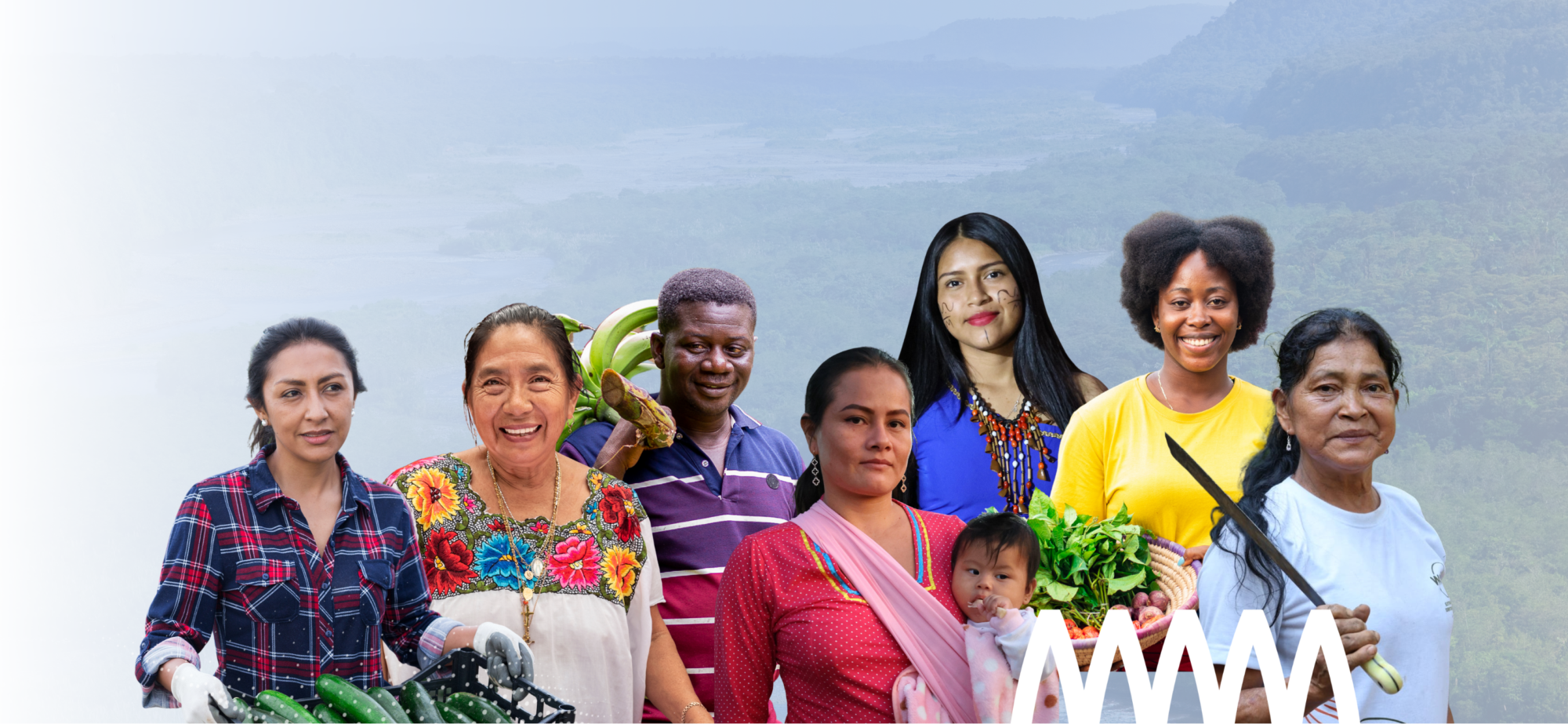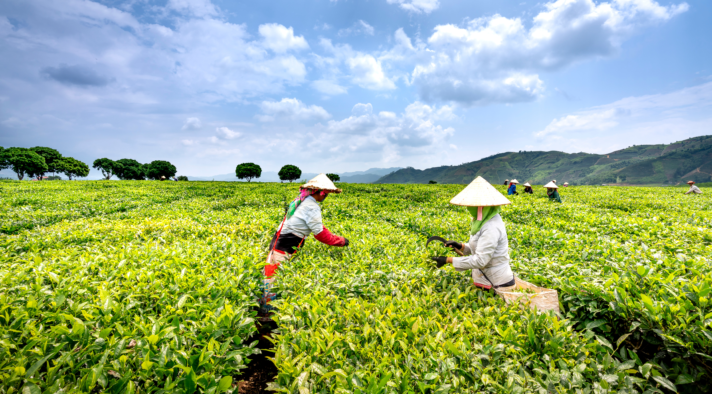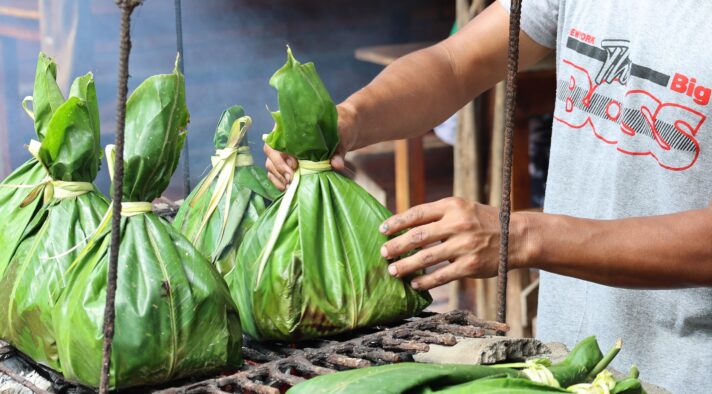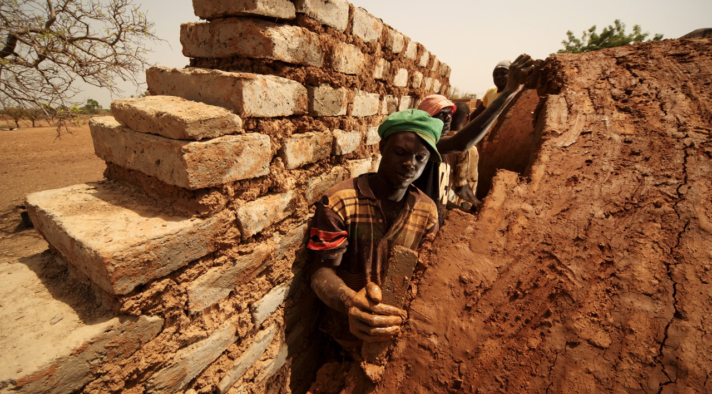Press Release in English
Press Release in Spanish
Regions4 launches the Just Resilience Action Platform, a global initiative to build climate resilience
A coordinated effort to put people at the heart of climate resilience
Belém, Brazil – 11 November 2025 – The Just Resilience Action Platform (JRAP), a global initiative supporting subnational governments in building just and people-centered resilience to climate change, was officially launched at COP30. The announcement was made by Ms. Gillian Martin, Cabinet Secretary for Climate Action and Energy from The Scottish Government, President of Regions4.
Developed by Regions4 with support from the Scottish Government, the Consortium of Provincial Autonomous Governments of Ecuador (CONGOPE), Nature4 Climate, the Global Covenant of Mayors for Climate and Energy (GCoM) and Race to Resilience as Founding Partners, JRAP arrives at a critical time in the global climate effort.
JRAP empowers subnational governments with the finance, tools, and partnerships needed to accelerate just and inclusive resilience in territories – where transformation happens. By connecting people, territories, and institutions, JRAP also serves as a global matchmaker, aligning local climate and nature projects with the donors, technical partners, and networks that can help them succeed. This coordinated approach ensures that resources and knowledge flow directly to the communities most affected by climate change and biodiversity loss, turning local vision into collective action.
Announcing the launch of the platform, Ms. Gillian Martin, Cabinet Secretary for Climate Action and Energy from The Scottish Government, President of Regions4, said: “The crises of climate change and biodiversity loss demand more than action – they demand justice. The Just Resilience Action Platform embodies that principle, connecting local leadership, knowledge and solutions with global solidarity. By empowering communities to address the root causes of inequality and vulnerability, we’re investing in justice, in people, and in the places where real transformation begins. The Scottish Government has embedded climate justice into all of our international engagement and is proud to support this platform to make resilience both just and lasting.”
A Platform Connecting Local Action with Global Support
Five years into what the United Nations calls the “decade of delivery,” the climate crisis continues to intensify, magnifying long-standing social, economic, and environmental inequalities. Climate impacts are felt most deeply by those least responsible for it: women, children, the elderly, low-income households, people with disabilities, and Indigenous peoples. These pre-existing vulnerabilities are now aggravated by extreme weather, resource scarcity, and biodiversity loss, threatening lives and livelihoods worldwide.
Subnational governments are on the frontlines of this reality. Responsible for up to 70% of climate mitigation and over 90% of adaptation actions, they are often the closest authorities to communities and ecosystems under pressure. Yet, they currently receive less than 17% of international climate finance, leaving many without the means to respond effectively.
JRAP directly addresses this gap. The platform acts as a matchmaker, connecting territory-led, project-specific needs with donors, investors, and technical partners to match resources for action. By channelling finance, technical support, and shared learning, JRAP empowers subnational governments to move projects from ideas to implementation – ensuring that climate action strengthens people’s resilience, livelihoods, and local economies.
From Vision to Action: How JRAP Works
JRAP acts as an integrated mechanism to build just and people-centered resilience, placing people and nature at the core of inclusive responses to the climate and ecological crises. It recognizes that pre-existing social and economic inequalities heighten vulnerability and that building resilience requires tackling these structural challenges alongside environmental action. JRAP’s work is structured around three interconnected pillars:
- Piloting Solutions: Supports early-stage, community-driven projects that combine climate, nature, and equity goals, connecting a curated pipeline of shovel-ready initiatives to needed technical and financial support.
- Learning & Scaling: Enables region-to-region exchange, knowledge sharing, and development of tools and methodologies to replicate, adapt & scale successful models.
- Influencing Global Agendas: Raises visibility of subnational action in international forums – from Climate COP30 to Biodiversity COP17, the UN High-Level Political Forum for Sustainable Development and beyond.
The first pilot: Guardians of the Amazon
JRAP’s first pilot project, Guardians of the Amazon shows the power of locally driven action. Developed in the Ecuadorian Amazon by Regions4, Nature4Climate and Wiñak, with the support from The Scottish Government, CONGOPE, The Nature Conservancy, Nature and Culture International, the Global Alliance of Territorial Communities (GATC) and the Environmental Defense Fund (EDF), the initiative strengthens Indigenous economies, promotes forest restoration, and uses drone-based monitoring systems to protect biodiversity.
About the first pilot led by JRAP, in collaboration with CONGOPE, Ing. Clemente Bravo, President of CONGOPE, a Founding Partner of JRAP and Regions4 member, said: “Every day, local communities face the impacts of climate change and biodiversity loss, and they find ways to turn adversity into resilience. The Guardians of the Amazon initiative, developed by CONGOPE, together with Indigenous organizations, the Scottish Government, and Regions4, shows what is possible when local priorities and global solidarity come together under territorial leadership.
Across Ecuador and Latin America, provincial governments are already leading efforts to build just and sustainable futures for our people. But to go further, we need stronger partnerships that recognize and support the leadership of our territories. Through JRAP, we are building a bridge that connects our communities with global partners, ensuring that resources reach those who are closest to the challenges and best placed to deliver solutions. CONGOPE is proud to be a founding partner of JRAP, and we invite others to join us in making just resilience a reality for territories around the world”.
Projects driving real impact that can be supported
Following the success of Guardians of the Amazon, JRAP’s project pipeline includes several territory-led initiatives open for investment and partnership opportunities, such as:
In Goiás, Brazil, the Cerrado em Pé programme rewards Indigenous peoples, traditional communities, and small farmers for conserving the threatened Cerrado savanna with a state-led Payment for Environmental Services scheme. With international support, Goiás aims to expand to over 40,000 hectares, restore water springs, and grow local bioeconomies.
In Azuay, Ecuador, the Wetland Restoration for Water Security and Local Empowerment project, restores high-altitude Andean wetlands that regulate water flow, store carbon, and support biodiversity. The project supports sustainable livelihoods and fosters local leadership- particularly among women and youth. With international support, Azuay aims to expand monitoring systems and restore additional wetlands.
In Saint-Louis, Senegal, the Mangroves for Coastal Resilience project is restoring mangroves in the Senegal River Delta, strengthening coastal protection and creating green livelihoods, including oyster farming, beekeeping, and eco-tourism. With international support, Saint-Louis aims to expand restoration, strengthen monitoring, and scale local capacities.
Supporting these initiatives now is vital to ensuring that communities and ecosystems have the recognition, resources, and resilience they need to face accelerating climate impacts.
Be a Champion for Equity: A Call to Join as a Founding Partners
JRAP is now calling on governments, development banks and institutions, philanthropies, and the private sector to join as Founding Partners, helping to support impactful projects and real action in territories and communities most vulnerable to climate and biodiversity loss.
By investing in JRAP, partners can directly support just, nature-based, and locally led solutions in territories, gain access to knowledge tools on just resilience and more and be recognized a champion of equity at UN climate conferences and high-level climate and biodiversity summits.
For more information, please visit the Just Resilience Action Platform webpage.



